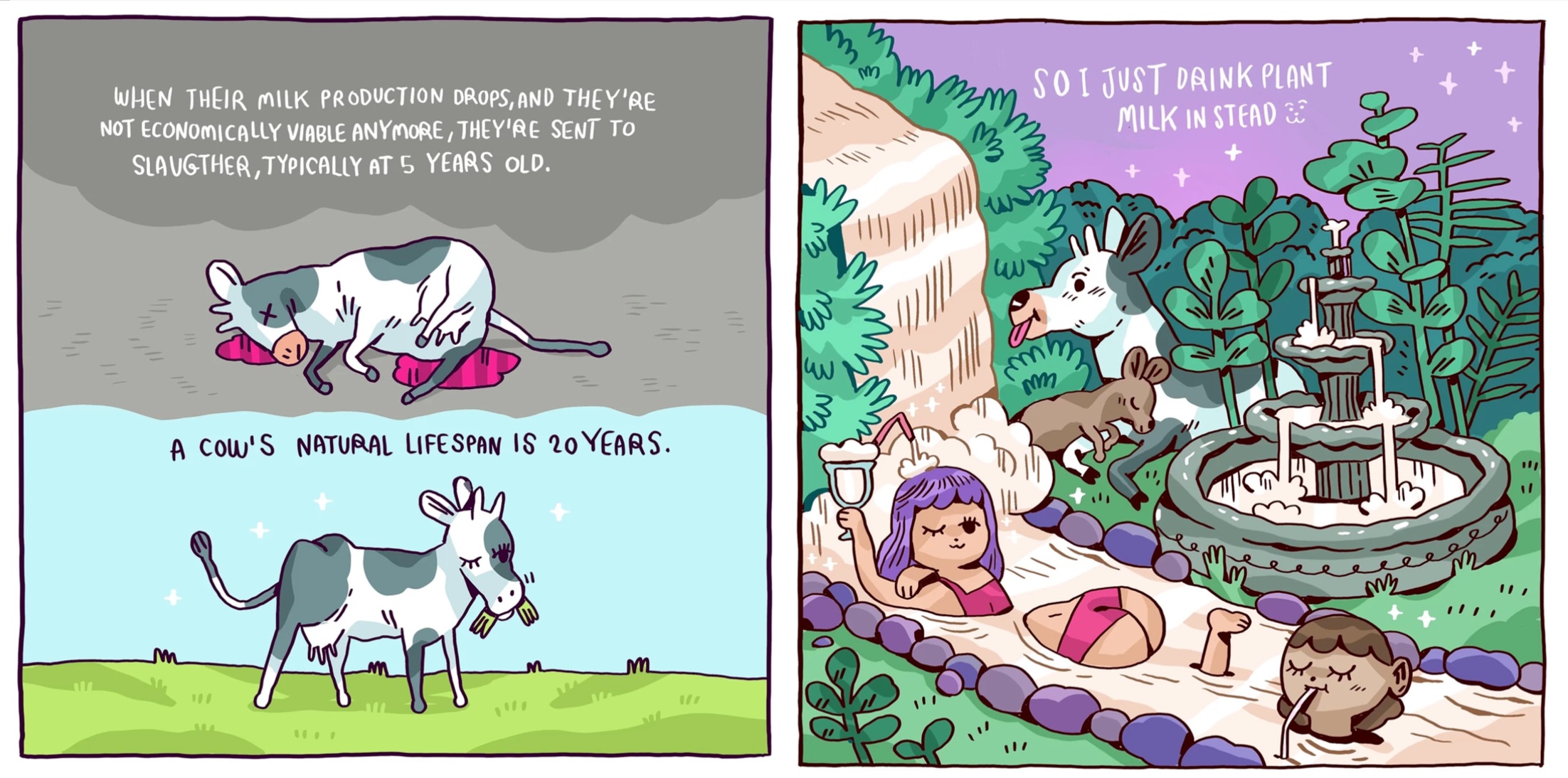Why Dairy is Bad for Your Skin and Eczema - Lectins & Leaky Gut
Dairy was one of the hardest things for me to "give up" when I was first making a big change in diet to heal my skin, and it's often a food group that people are most reluctant to give up when making a similar change. But there are very specific reasons why dairy is so problematic if you're trying to heal any health ailment, especially with your skin or eczema.
I recently listened to an episode of Tom Bilyeu's "Impact Theory" podcast, with guest Dr. Steven Gundry. In this episode, Dr. Gundry - a world-reknowned heart surgeon, medical researcher, and former President of the American Heart Association (AHA) - discusses the role of gut health in disease and why he chooses to avoid the foods he does (including gluten and dairy). In this post, I'll recap one of my favorite highlights - A little history lesson on why dairy is harmful to your gut and therefore harmful to your skin and eczema.
What is leaky gut and how does it work?
Dr. Gundry begins by expanding on a previous post of mine about the anatomy of our gut lining. (I simplified the science here - visual aids included!). In short, the lining of our entire gut is held together by connections called tight junctions, which are supposed to regulate what we absorb through our gut lining and into our bodies.
Now let's talk about food - Lectins are a protein, found in many foods, that bind to certain sugar molecules present in our gut lining. When lectins bind in our gut, it causes the tight junctions to separate where they shouldn't, creating leaks (hence "leaky gut"). This allows our bodies to absorb more than we should - including bad stuff like bacteria, waste, or even more lectins.
Unintentionally absorbing all this bad stuff turns ON the body's immune system so that we can fight against these things that shouldn't be there. This manifests in so many different ways, and in some people, the redness, inflammation, and itch of eczema is one of them.
So what's the deal with dairy?
About 2,000 years ago, Northern European cows suffered a spontaneous genetic mutation, where they stopped making their normal milk protein, called casein A2, and began making a new protein instead, called casein A1. Casein A1 is a lectin-like protein, which causes leaky gut and stimulates the body's immune response, contributing to symptoms like inflammation and eczema. And because American cows came from Northern Europe, this is why cow milk and dairy products in the US and Canada can contribute greatly to your skin issues and eczema.
What should you do?
The answer is simple - Minimize or eliminate your dairy intake by using milk substitutes, such as nut or hemp milks! Oat milk is another good dairy alternative, but if you are also avoiding gluten (FYI, gluten is a type of lectin), be sure that your oat milk is certified gluten-free.
As a side note, sheep and goat dairy contain the more easily digestible casein A2 protein, and much less or no casein A1. This is why dairy products from these sources are thought to be less problematic than cow dairy.
When I was first discovering holistic nutrition at the start of my healing journey, my body and skin were so much more fragile and weak than they are now. Initially, I was very strict in eliminating cow dairy from my diet entirely, even in minuscule amounts. Ever since learning HOW and WHY I should make this lifestyle change, my skin and body have become a thousand times stronger. Now, I feel comfortable treating myself to a dairy-containing treat every once in a while, but definitely in great moderation and as a conscious choice.
As an added bonus, here’s a comic by Norwegian cartoonist Ida Neverdahl, entitled “Milk is Disgusting,” that explains why she doesn’t drink cow’s milk.


